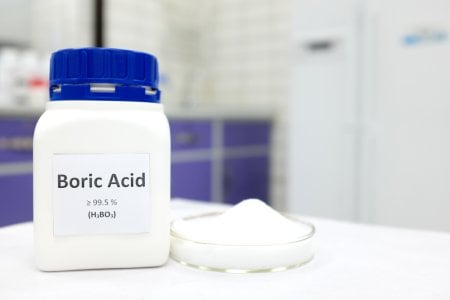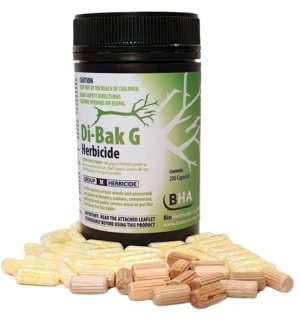Shocking Advice Exposed! Influencer's Controversial Secret for Women Goes Viral – But is it Safe?
By
Seia Ibanez
- Replies 11
In the digital age, where influencers often hold as much sway as medical professionals in the eyes of their followers, it's increasingly important to approach health and wellness advice with a critical eye. This is especially true when that advice goes viral, reaching millions and potentially impacting the health decisions of a vast audience. Recently, a piece of such advice has sparked outrage and concern among health experts and the public alike.
Allison Hoeller, a popular US influencer, has been promoting the use of boric acid—a chemical commonly used as a pesticide—as a means for women to maintain vaginal 'freshness' and ensure it 'smells like water.' Her videos, which have amassed millions of views, suggest that inserting a boric acid tablet into the vagina can eliminate any 'odour or taste,' promising results within 24 to 48 hours before a date.
However, the medical community has been quick to denounce these claims. Experts have warned that there is no substantial evidence to support the use of boric acid in this way and that it could, in fact, be harmful. Boric acid is indeed used in low doses in certain pharmaceutical products to treat some resistant vaginal infections, but its use as a 'vaginal refresher' is not only unsupported by science but also potentially dangerous.
Dr. Philippa Kaye, a GP and expert on women's health issues, has expressed concern over the harshness of boric acid on vaginal tissue. She explains that as an astringent, boric acid can dry out and damage tissue, leading to irritation and an increased risk of sexually transmitted infections (STIs). The vagina's microbiome, which is composed of beneficial bacteria, is delicate and self-regulating. Introducing boric acid indiscriminately kills both good bacteria and any overgrowth of yeast, disrupting this balance.
Professor Penny Ward, a specialist in pharmaceutical medicines at Kings College London, also weighed in, stating that boric acid's use should be restricted to prescription by a healthcare professional for specific recurrent vaginal infections. She emphasizes the importance of keeping such treatments away from others, especially given their resemblance to oral medications, to prevent accidental ingestion, which can be toxic.
The vagina's natural ecosystem is designed to maintain a healthy pH balance and protect against infection. Normal vaginal discharge is a combination of fluid from the vaginal walls, mucus from the cervix, and lactobacilli bacteria. It provides lubrication and varies in amount throughout the menstrual cycle. Any significant change in odour or discharge is a sign to seek medical advice, not to self-treat with unproven and potentially harmful substances.
This incident is not the first time celebrities and influencers have been criticized for promoting dubious vaginal health products. From Kourtney Kardashian's vaginal wellness gummies to Gwyneth Paltrow's Jade Eggs, the trend of celebrity-endorsed vaginal health fads has been met with skepticism and warnings from the medical community.
For our readers at the Seniors Discount Club, it's crucial to remember that while the internet can be a treasure trove of information, it's also rife with misinformation, especially regarding health and wellness. Always consult with a healthcare professional before trying new treatments or remedies, particularly those that involve sensitive areas of the body like the vagina. It's also worth noting that the natural aging process can bring changes to the body, and what might be marketed as a 'freshness' issue could be a normal part of life.

We encourage our members to engage in open conversations with their doctors about any concerns they may have and to be wary of health advice from non-medical sources, no matter how popular or persuasive they may seem. Have you encountered any questionable health advice on social media? How do you determine what to trust? Share your thoughts and experiences in the comments below, and let's continue to support each other in making informed health decisions.
Allison Hoeller, a popular US influencer, has been promoting the use of boric acid—a chemical commonly used as a pesticide—as a means for women to maintain vaginal 'freshness' and ensure it 'smells like water.' Her videos, which have amassed millions of views, suggest that inserting a boric acid tablet into the vagina can eliminate any 'odour or taste,' promising results within 24 to 48 hours before a date.
However, the medical community has been quick to denounce these claims. Experts have warned that there is no substantial evidence to support the use of boric acid in this way and that it could, in fact, be harmful. Boric acid is indeed used in low doses in certain pharmaceutical products to treat some resistant vaginal infections, but its use as a 'vaginal refresher' is not only unsupported by science but also potentially dangerous.
Dr. Philippa Kaye, a GP and expert on women's health issues, has expressed concern over the harshness of boric acid on vaginal tissue. She explains that as an astringent, boric acid can dry out and damage tissue, leading to irritation and an increased risk of sexually transmitted infections (STIs). The vagina's microbiome, which is composed of beneficial bacteria, is delicate and self-regulating. Introducing boric acid indiscriminately kills both good bacteria and any overgrowth of yeast, disrupting this balance.
Professor Penny Ward, a specialist in pharmaceutical medicines at Kings College London, also weighed in, stating that boric acid's use should be restricted to prescription by a healthcare professional for specific recurrent vaginal infections. She emphasizes the importance of keeping such treatments away from others, especially given their resemblance to oral medications, to prevent accidental ingestion, which can be toxic.
The vagina's natural ecosystem is designed to maintain a healthy pH balance and protect against infection. Normal vaginal discharge is a combination of fluid from the vaginal walls, mucus from the cervix, and lactobacilli bacteria. It provides lubrication and varies in amount throughout the menstrual cycle. Any significant change in odour or discharge is a sign to seek medical advice, not to self-treat with unproven and potentially harmful substances.
This incident is not the first time celebrities and influencers have been criticized for promoting dubious vaginal health products. From Kourtney Kardashian's vaginal wellness gummies to Gwyneth Paltrow's Jade Eggs, the trend of celebrity-endorsed vaginal health fads has been met with skepticism and warnings from the medical community.
For our readers at the Seniors Discount Club, it's crucial to remember that while the internet can be a treasure trove of information, it's also rife with misinformation, especially regarding health and wellness. Always consult with a healthcare professional before trying new treatments or remedies, particularly those that involve sensitive areas of the body like the vagina. It's also worth noting that the natural aging process can bring changes to the body, and what might be marketed as a 'freshness' issue could be a normal part of life.
Key Takeaways
- A popular US influencer has been promoting the use of boric acid in the vagina to achieve freshness, causing outrage and concern among health experts.
- Medical professionals refute the influencer’s claims, highlighting that boric acid is typically an insecticide and can potentially cause harmful effects when used intravaginally.
- Experts emphasise that the vagina has its own bacterial balance and pH that should be left undisturbed, while also pointing out that boric acid could increase irritation and the risk of STIs.
- This incident continues the trend of public figures promoting dubious vaginal health products and practices, with doctors reiterating that these can be ineffective, unnecessary, and potentially dangerous.
We encourage our members to engage in open conversations with their doctors about any concerns they may have and to be wary of health advice from non-medical sources, no matter how popular or persuasive they may seem. Have you encountered any questionable health advice on social media? How do you determine what to trust? Share your thoughts and experiences in the comments below, and let's continue to support each other in making informed health decisions.









